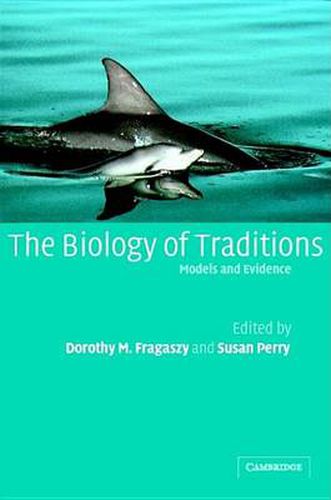Readings Newsletter
Become a Readings Member to make your shopping experience even easier.
Sign in or sign up for free!
You’re not far away from qualifying for FREE standard shipping within Australia
You’ve qualified for FREE standard shipping within Australia
The cart is loading…






Socially-maintained behavioral traditions in nonhuman species hold great interest for biologists, anthropologists and psychologists. This book treats traditions in nonhuman species as biological phenomena that are amenable to the comparative methods of inquiry used in contemporary biology. Chapters in the first section define behavioral traditions, and indicate how they can arise in nonhuman species, how widespread they may be, how they may be recognized and how we can study them. The second part summarizes cutting-edge research programs seeking to identify traditions in diverse taxa in contributions from leading researchers in this area. The book ends with a comparison and evaluation of the alternative theoretical formulations and their applications presented in the book, and lays out recommendations for future research building on the most promising evidence and lines of thinking. The Biology of Traditions will be essential reading for students and researchers in the fields of anthropology, biology and psychology.
$9.00 standard shipping within Australia
FREE standard shipping within Australia for orders over $100.00
Express & International shipping calculated at checkout
Socially-maintained behavioral traditions in nonhuman species hold great interest for biologists, anthropologists and psychologists. This book treats traditions in nonhuman species as biological phenomena that are amenable to the comparative methods of inquiry used in contemporary biology. Chapters in the first section define behavioral traditions, and indicate how they can arise in nonhuman species, how widespread they may be, how they may be recognized and how we can study them. The second part summarizes cutting-edge research programs seeking to identify traditions in diverse taxa in contributions from leading researchers in this area. The book ends with a comparison and evaluation of the alternative theoretical formulations and their applications presented in the book, and lays out recommendations for future research building on the most promising evidence and lines of thinking. The Biology of Traditions will be essential reading for students and researchers in the fields of anthropology, biology and psychology.